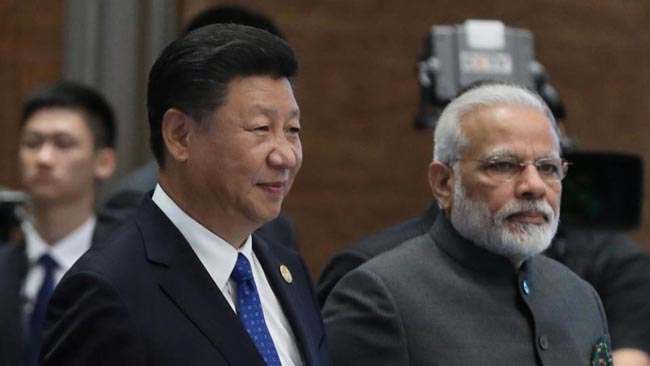Beijing, April 23:
The announcement of the unprecedented “informal summit” between PM Narendra Modi and President Xi Jinping to be held later this week in China seems to have suddenly put back on track Sino-India ties, considered checkered at the best of times.
The central China city of Wuhan with links to iconic leader Mao Zedong will host the two leaders as they walk by the Yangtze river, ponder and discuss bilateral ties and the road ahead for the two most populous nations in a world becoming increasingly protectionist about trade and commerce.
Clearly, the divide between the two countries is wider than the 3,488km of disputed boundary that separates the two countries on either side of the Himalayan mountain range.
Old differences like the border dispute, India sheltering the Dalai Lama and Beijing’s snug ties with Islamabad combined with new ones, including over China’s increasing clout in south Asia, make the Sino-India relationship complex and layered.
The summit, it is expected, will take a broad look at the differences but focus more on points of convergence, for example, tapping the economic potential.
Both Indian external affairs minister Sushma Swaraj and her Chinese counterpart, Wang Yi, struck the right notes of optimism when they announced the meeting, which will be held over Friday and Saturday.
“This not only benefits the two countries and peoples, but will also exert significant and positive influence on regional and world peace and development,” Wang said on Sunday evening with Swaraj sitting by his side.
“It is an inevitable choice of the two countries to stick to long-term friendship, mutual beneficial cooperation and common development,” he added.
Swaraj’s words added to the sense of pre-summit accomplishment.
“India is ready to work with China to deepen leaders’ friendship through the meeting, enhance trust between the two countries and promote India-China strategic cooperative partnership to a new high,” she said.
So are Chinese academics who focus on India and south Asia.
“It is of great significance that PM Modi will come to China before the Shanghai Cooperation Organisation (SCO) summit in June. This summit will help India and China to step out of the shadow of the Donglang (Doklam) military standoff,” Wang Dehua, south Asia expert at the Shanghai Municipal Center for International Studies, said.
Wang added that the meeting could lead Sino-India relations “toward a comprehensive partnership” and invest a sense of “solidarity and unity” among the two countries.
“There are reasons for the two top leaders to engage more frequently as Sino-India relations grow more important globally, more important internationally and grow independent of (respective) ties to other countries,” Hu Shisheng, director of the Institute of South and Southeast Asian and Oceania Studies in Beijing, said.
“Since China and India relation is a typical kind of major power relations, and even more complicated than China-US relations, the biggest challenge is that we need more ballast to guide the ship of Sino-India ties. The two leaders can provide the ballast,” Hu said.
One source of the ballast could be bilateral trade, the potential for which is not lost on the leadership of the two countries.
According to official figures from the Chinese ministry of commerce, China’s trade with India reached a record high of $ 84.4 billion in 2017, up 20.3% from 2016. China remains India’s largest trading partner.
“Chinese companies have invested more than $8 billion in real investment, and Indian companies have increased their investment in China by an average of 18.5% over the past three years,” the Chinese commerce ministry said in March.
“Recently, a Chinese trade delegation visited India. During the visit, Chinese and Indian companies signed as many as 101 trade agreements with a total contract value of 2.38 billion dollars, covering black tea, castor oil, peppermint oil, coconut fiber, coffee beans and other products,” official news agency, Xinhua said in a report.
“The agreements not only illustrate China’s determination to further open up to the world, but also reflect the country’s great interest in the Indian market,” it added.
Courtesy: Hindustan Times




